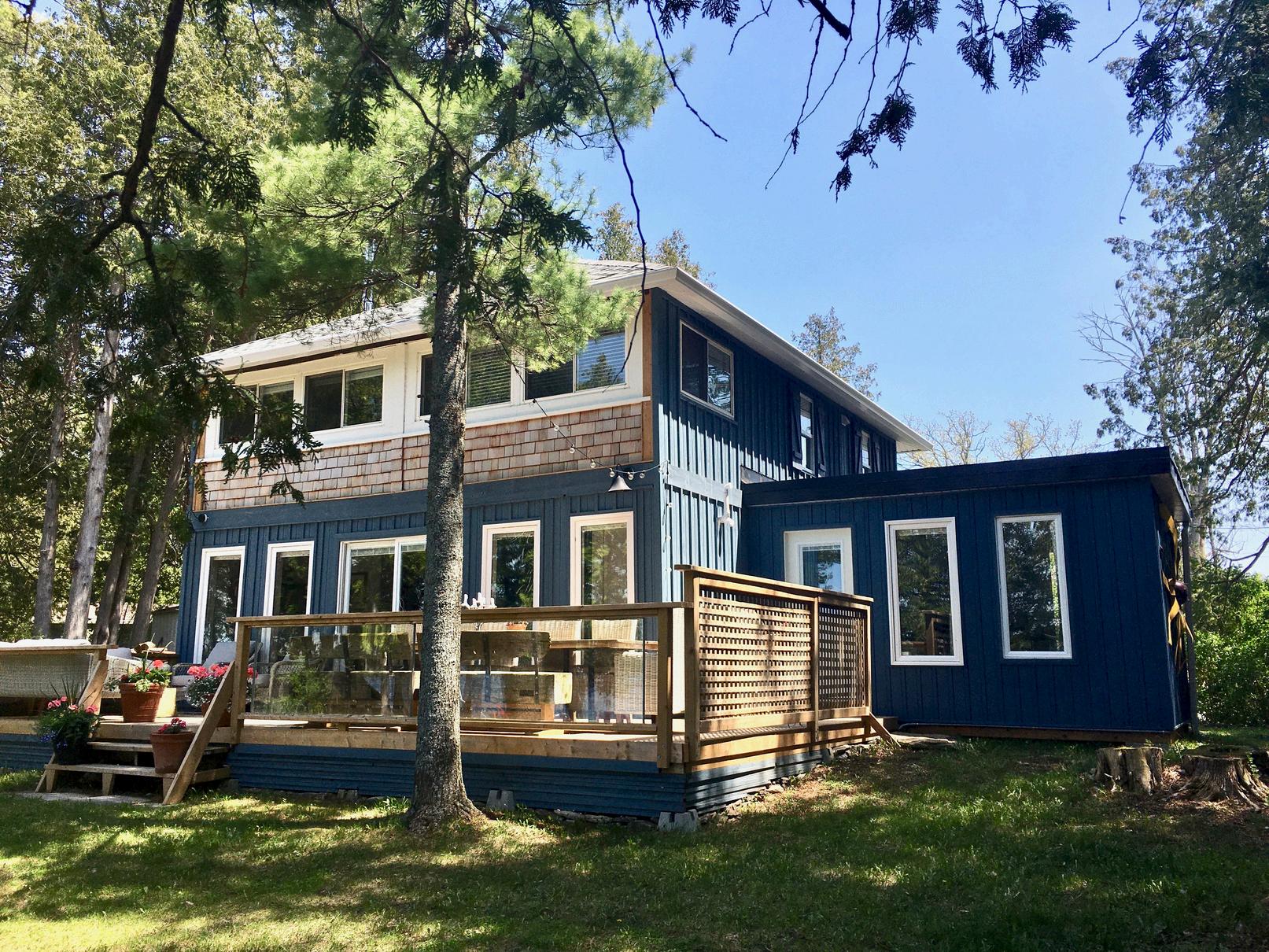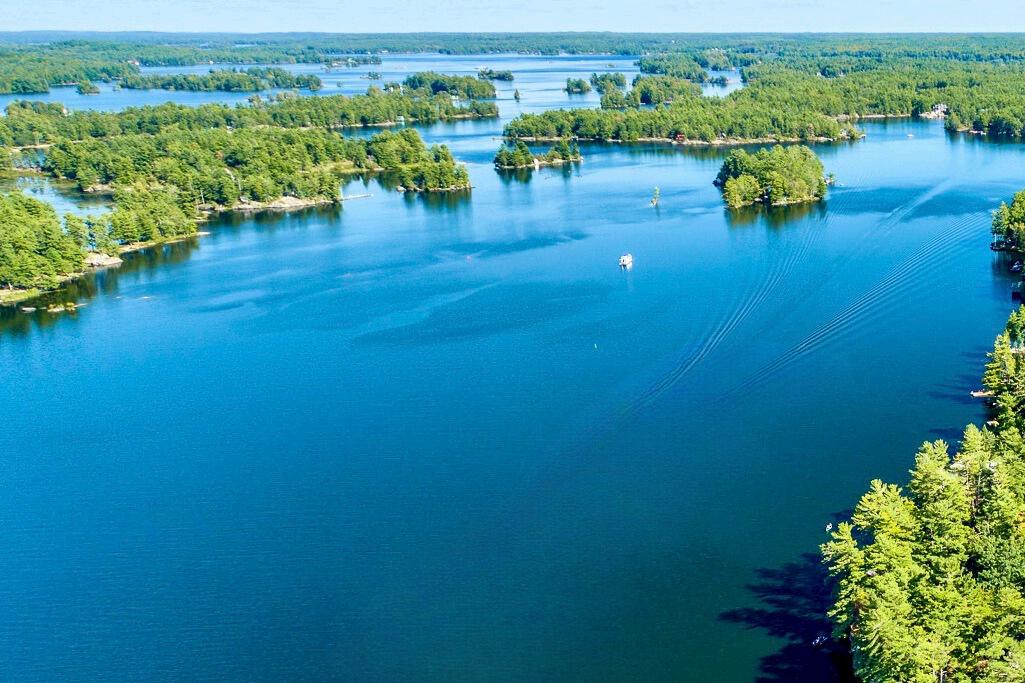

RURAL PROPERTY CONSIDERATIONS

THINGS TO CONSIDER BEFORE BUYING A
RURAL PROPERTY
TABLE OF CONTENTS:
Page 1 Introduction
Water Source
Page 2
Page 3
Page 4
Page 5
Page 6
Page 7
Water Source (Continued)
Septic System
Conservation Areas, Building By-Laws, Zoning and Permits
Internet, Television and Cell Service
Garbage Collection
Garbage Collection (Continued)
Waterfront - Weeds - Docks
Shoreline Road Allowance
Survey - Boundaries
Road Maintenance
Utility Costs and Heating
Page 8
Title Insurance
Land Transfer Tax
Future Capital Gains Tax
Rural Mortgage
Renting & Air B&B
Proximity to Shopping, Hospitals and the GTA

THINGS TO CONSIDER BEFORE BUYING A
RURAL PROPERTY
Introduction: City Dwellers are accustomed to having all the services they will need being delivered directly to their property by the municipality and the various utility providers. However, this is not necessarily the case with rural properties. So an understanding of how these services might be provided to the rural property owner, is a must for anybody contemplating purchasing a rural property.
Water Source:
Owners normally depend on having either a dug well or a drilled well on their property for a source of water
Dug wells are created by the excavation of the land area through the use of a hand shovel until it reaches a level lower than the water table and when the incoming water surpasses the bailing rate of the digger
Dug wells are susceptible to contamination because they only obtain water from shallow aquifers. Usually, contaminants are thriving in areas nearer the surface.
Drilled wells are usually deeper than dug wells
A hole is drilled into the earth's surface to extract water from the aquifer.
The average depth is usually between 160 and 250 feet (50 to 75 meters) but can be a lot more - 1,000 feet if needed.
Drilled wells have lower chances of being contaminated. The well water should be tested at least 3 times a year to insure it is not contaminated
To test your water get a well water sample collection kit from your nearest PHO laboratory, public health unit or designated pickup location in your area (drug store).
If your water is contaminated, contract a plumber to install a water filtration system including an Ultraviolet (UV) purifier.

THINGS TO CONSIDER BEFORE BUYING A
RURAL PROPERTY
Water Source
(Continued):
Septic System:
In most cases, lake or river water can be used to supply water to your home.
Proper testing of the water is a very important consideration because, the presence of bacteria can be high anytime water has an open contact with the environment. There are many factors which can effect lake or ground water. Testing will determine the best method of disinfection and processing of the water
A plumber will install a submersible pump deep in the lake and a water filtration system including an Ultraviolet (UV) purifier.
Many rural properties do not have the luxury of using a municipal sewer system.
To dispose of waste, these properties frequently operate with a septic system or holding tank.
Depending on the usage of the system, a septic tank should be pumped out every 2 to 4 years.
When purchasing a rural property with a septic system, it is crucial to ensure that the system is in good working order prior to closing. In addition, it is advisable to require that the Seller pump the septic system prior to the transaction closing.
A report from the company maintaining the Septic System which indicates the System is in good working order, should be requested as well.
If a property does not have a Septic System it may store the sewage in a holding tank.
Depending on the usage, the holding tank may need to be pumped out 2 to 3 times a year.
THINGS TO CONSIDER BEFORE BUYING A
RURAL PROPERTY
Conservation Areas,
Building By-Laws, Zoning and Permits:
Internet, Television and Cell Reception:
Garbage Disposal:

If you plan on making significant changes or upgrades to the property like building a new residence, a new boathouse, a new dock, or a new garage etc., it is extremely important that you are aware of what the By-Laws and Zoning will allow You are best to speak with a reputable knowledgeable local builder before you make a purchase.
Zoning and conservation requirements are especially important to check on waterfront properties
A new build is required to be a certain distance from the water, specific to that lot.
Your build must also be set back from the road With these set backs, you could end up having to modify or shrink your house plans.
Also be aware that you will need multiple permits from various authorities before you can build
It seems that everybody wants internet, television and cell reception.
Cell reception can be spotty in various areas
Internet and television are generally available from Satellite providers.
If these services are important to you, be aware of what is available in the location you wish to buy
Garbage Collection is another service that City Dwellers take for granted
Garbage Collection may or may not be available in your chosen location
If the property is on a private road garbage collection might be available through a private service for a cost.
Be aware of how this service is available to you in your chosen location.

THINGS TO CONSIDER BEFORE BUYING A
RURAL PROPERTY
Garbage Disposal
(Continued):
As garbage removal and recycling services are provided differently than in the city, understanding how garbage collection works in your neighbourhood is imperative. This includes costs and frequency.
Rural residents may choose to haul their garbage and recycling to a solid waste transfer station or public landfill.
A solid waste transfer station is a facility that transfers waste to another waste management facility for disposal or recycling. Transfer stations typically provide a more convenient drop-off location for residents compared to public landfill sites. Depending on the location, some landfills and transfer stations charge usage fees.
While this is a relatively convenient option, there is still the hassle of hauling your own garbage every week or two.
Not a big deal if you own a truck or can tow a small trailer. You will also need to separate anything in your trash that contains contaminants.
Items such as batteries, tires, petroleum-containing products like paints and oils, pharmaceutical supplies, asbestos, appliances, pesticides, and any other hazardous waste need to be disposed of in designated bins at an eco station or transfer station.
Burning waste on rural properties is also dependent on local bylaws and ideally should not be your first option for waste disposal
Make sure you burn garbage in large, mesh-covered metal barrels and never leave the fire unattended.

THINGS TO CONSIDER BEFORE BUYING A
RURAL PROPERTY
Waterfront - Weeds -
Docks:
Shoreline Road Allowance
During the winter months it will be difficult to determine how deep the water is off the dock.
In addition, it will be difficult to determine if the lake is weedy. Ask the listing agent for pictures of the waterfront during the spring summer and fall.
Speak to the neighbours Google the lake.
A shoreline road allowance is a 66-foot strip of land between a cottage and the banks of a lake or river.
When surveyors of Crown land first created these road allowances in Ontario in the late 19th century, they were originally designated for commercial activities like transportation of goods and logging The commercial purposes are gone now, but often the municipality still owns the road allowances.
Currently, the Municipal Act says you have exclusive use of the road allowance on your shores
However, if you don’t own it, you can’t control any rules that may change in the future, and members of the public may consider it public property that they can use
Your boathouse, dock, or even your cottage itself may be built on a shore road allowance.
If you do not buy the roadway or sign a licence agreement to pay an annual rental, those structures are effectively illegal
If you are planning to buy a waterfront cottage, obtain a land survey to ensure all the structures are on owned land.
If the road allowance can be purchased, you should do so. Once approval is given, there are municipal fees, legal fees to transfer title, and the cost of a land survey.

THINGS TO CONSIDER BEFORE BUYING A
RURAL PROPERTY
Survey Boundaries
Road Maintenance
It may be difficult to visually inspect the boundaries of a rural property, as there is often vegetation between property lines, with no clear boundaries erected.
Rural properties are often not registered on plans of subdivision, and therefore may require some extra investigation to determine the exact location of their boundaries.
Boundary issues can also sometimes exist. When these issues do arise, there is the possibility that effective ownership of some of the land has been either acquired or lost through usage by someone other than the owner of the legal title. Lawyers refer to this as “adverse possession”, although the more common name is “squatter’s rights” .
In most parts of Ontario, it is no longer possible to gain or lose ownership and usage rights in this manner, unless those rights had already existed at the time the Ontario government converted the title registration system from the old paper-based system to a new online system.
That change occurred over a multi-year period starting in early 1999
Some rural properties are accessed by private roads.
In this instance, it is not uncommon for a road association to be formed to maintain the private road year round.
The yearly fee to the property owner may be about $400 00 to pay for the snow plowing and grading of the road.
Municipalities and Insurance companies require that the road be maintained year round for access of emergency vehicles

THINGS TO CONSIDER BEFORE BUYING A
RURAL PROPERTY
Utility Costs & Heating
Generator
Insurance
Title Insurance
Land Transfer Tax
Future Capital Gains Tax
Most rural properties (even islands) will have hydro electricity available unless the property is “off the grid”.
Most rural properties will not have natural gas.
So propane gas stored in rental propane tanks is used instead Properties may be heated by electricity, propane, oil or a wood burning furnace or fireplace.
Utility costs are normally higher than in an urban area.
It is not unusual for an owner to install a generator for back-up electricity in case of a power outage. These generators use propane as their energy source
Expect insurance coverage to be higher as you will be covering your buildings as well as your recreation items such as your all terrain vehicles, SeaDoos, SkiDoos and boats.
Coverage will get more expensive the further you are from a Fire Station.
This is vital for rural purchases and will protect you from unforeseen incidents with the deed or transfer.
It will also alert you to any improper previous use of the property (such as waste dumping).
You can expect that the Land Transfer Tax will be about half the amount you would have to pay on a similar priced home in the City of Toronto.
If the purchase is not your primary residence, you can expect to pay Captital Gains Tax when you sell the property.

THINGS TO CONSIDER BEFORE BUYING A
RURAL PROPERTY
Mortgages
Renting & Air B&B
Proximity
A rural mortgage is a type of mortgage that's designed specifically for homes in rural areas.
It often has different requirements and interest rates than a traditional mortgage
You'll typically need a larger down payment for a rural property than you would for a traditional home.
A land loan is a type of loan that's designed specifically for the purchase of raw land
It typically has different requirements and interest rates than a traditional mortgage.
A construction loan is a short-term loan that's designed to cover the cost of building a home.
If you're planning to build a home on your rural property, you'll likely need a construction loan to cover the cost of the building process. The Canadian government offers several programs that can help you finance a rural property, including the Farm Credit Canada program and the Canadian Agricultural Loans Act program.
If you are planning on renting the property for a portion of the year, be aware of any restrictions in the County
As well, if you are purchasing a property that is next door to a property which is rented out on a short term basis, it’s likely you will have noisy temporary neighbours.
Proximity is a very important consideration.
Proximity to shopping
Proximity to a Marina
Proximity to medical care and a hospital
And for the regular commuters - proximity to the GTA




